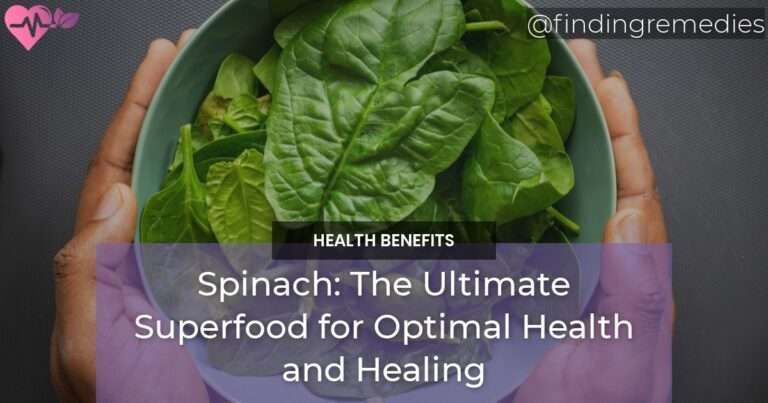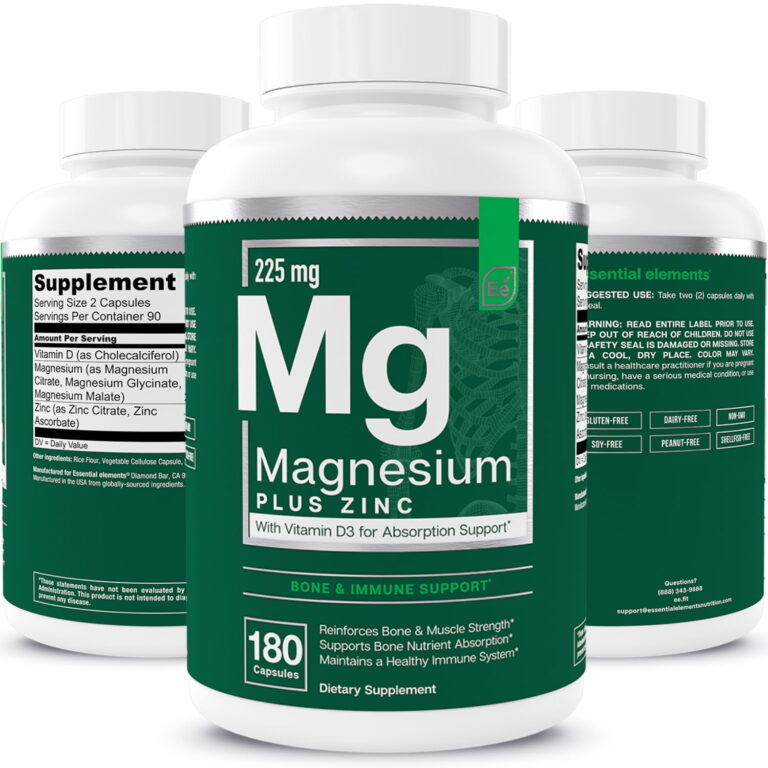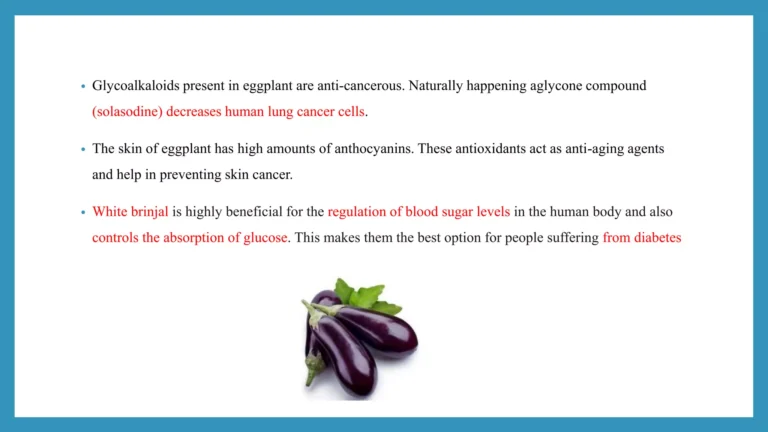Spinach: The Ultimate Superfood? 12 Amazing Health Benefits You Need to Know
For centuries, this verdant leaf has graced our plates, often relegated to a humble side dish or a forgotten ingredient. Yet, beneath its unassuming exterior lies a nutritional powerhouse, a silent guardian of health that has been celebrated by ancient civilizations and modern science alike. From its origins in Persia to its iconic portrayal as the source of Popeye’s superhuman strength, spinach has always held a special, albeit sometimes misunderstood, place in our culinary and wellness landscape.
But is spinach truly the "ultimate superfood"? The term "superfood" itself often conjures images of exotic, expensive ingredients. Spinach, however, is neither. It’s affordable, widely available, and incredibly versatile. Its profound impact on virtually every system of the human body, backed by an impressive array of vitamins, minerals, and phytonutrients, certainly makes a compelling case. Join us as we delve deep into the world of spinach, uncovering 12 amazing health benefits that underscore its status as a foundational pillar of a truly healthy diet. Prepare to be astonished by the power packed into these humble green leaves.
1. A Nutritional Powerhouse: More Than Just a Green Leaf
To truly appreciate spinach, one must first understand its comprehensive nutritional profile. It’s not merely a source of one or two key nutrients; rather, it’s a symphony of essential vitamins, minerals, and unique phytonutrients working in concert. A single serving of spinach (about 3.5 ounces or 100 grams) is astonishingly low in calories, yet bursting with an incredible density of micronutrients.
Consider its vitamin content: an exceptional source of Vitamin K1 (phylloquinone), crucial for blood clotting and bone health, often providing well over your daily recommended intake. It’s also incredibly rich in Vitamin A (from beta-carotene), essential for vision, immune function, and skin health, and a good source of Vitamin C, a potent antioxidant vital for immune support and collagen synthesis. Furthermore, spinach contributes significant amounts of folate (Vitamin B9), critical for cell growth and DNA formation, and provides smaller but notable quantities of other B vitamins like B6, B2, and E.
On the mineral front, spinach shines brightly. It’s a respectable source of iron, vital for oxygen transport and energy production, though it’s important to note it’s non-heme iron, which is less readily absorbed than heme iron from animal sources (a point we’ll revisit). Magnesium, essential for over 300 enzymatic reactions in the body, from muscle and nerve function to blood glucose control, is also present in abundance. Manganese, potassium, and calcium round out its impressive mineral roster, each playing unique and indispensable roles in maintaining overall physiological balance. Beyond these well-known nutrients, spinach also boasts a rich array of beneficial plant compounds like flavonoids, carotenoids (lutein, zeaxanthin, neoxanthin, violaxanthin), and powerful antioxidants, which collectively contribute to its protective effects against chronic diseases. This holistic nutrient density truly sets spinach apart, making it a foundational component of any health-conscious diet.
2. The Architect of Strong Bones: Beyond Dairy
When we think of bone health, calcium and dairy products often come to mind first. While dairy certainly plays a role, spinach offers a powerful, plant-based alternative, primarily due to its exceptional Vitamin K content, particularly Vitamin K1 (phylloquinone). This fat-soluble vitamin is absolutely critical for maintaining robust bone density and preventing age-related bone loss conditions like osteoporosis.
The mechanism is fascinating: Vitamin K acts as a co-factor for an enzyme that activates several proteins involved in bone metabolism. One of the most important of these is osteocalcin, a protein synthesized by osteoblasts (bone-forming cells). Osteocalcin needs to be carboxylated by Vitamin K to bind calcium effectively and incorporate it into the bone matrix. Without sufficient Vitamin K, osteocalcin remains inactive, leading to impaired bone mineralization and weaker bones more susceptible to fractures.
Beyond Vitamin K, spinach also provides a good amount of calcium, another undisputed cornerstone of bone structure. While spinach also contains oxalates, which can bind to calcium and reduce its absorption, the sheer volume of calcium it provides still contributes positively. Moreover, the magnesium and manganese present in spinach also play supporting roles in bone health, participating in bone formation and mineral density. Incorporating spinach regularly ensures a steady supply of these crucial bone-building nutrients, offering a comprehensive strategy for maintaining skeletal integrity throughout life, often overlooked in the shadow of its more famous dairy counterparts.
3. Guardian of Your Vision: Protecting Your Precious Sight
Our eyes are constantly exposed to environmental stressors, from digital screens to harmful UV radiation. As we age, conditions like Age-related Macular Degeneration (AMD) and cataracts become more prevalent, threatening our precious sight. Fortunately, nature has provided powerful defenses, and spinach stands out as a prime example, brimming with specific compounds that act as internal sunglasses for our eyes.
The stars of the show in spinach for eye health are the carotenoids lutein and zeaxanthin. These are yellow pigments found in the macula, the central part of the retina responsible for sharp, detailed vision. Lutein and zeaxanthin act as powerful antioxidants, filtering out harmful high-energy blue light and neutralizing free radicals that can damage retinal cells. Studies consistently show that higher dietary intake of these carotenoids is associated with a significantly reduced risk of developing both AMD and cataracts. They form a protective layer, shielding the delicate photoreceptor cells from oxidative stress and inflammation.
Furthermore, spinach is an excellent source of beta-carotene, a precursor to Vitamin A. Vitamin A is indispensable for good vision, particularly in low light conditions, as it is a component of rhodopsin, the light-sensitive protein in the rods of the retina. Deficiency in Vitamin A can lead to night blindness and, in severe cases, permanent blindness. By regularly consuming spinach, you’re providing your eyes with a comprehensive arsenal of protective nutrients, fortifying them against the ravages of time and environmental assault, helping to preserve clarity and vibrancy in your vision for years to come.
4. A Champion for Cardiovascular Health: Nurturing Your Heart
The health of our cardiovascular system is paramount for a long and vibrant life, and spinach emerges as a formidable ally in this endeavor. Its diverse nutrient profile contributes to heart health through multiple pathways, addressing key risk factors for heart disease and stroke.
One of spinach’s standout contributions to heart health comes from its high content of dietary nitrates. Once consumed, these nitrates are converted into nitric oxide in the body. Nitric oxide is a potent vasodilator, meaning it helps relax and widen blood vessels, which in turn improves blood flow and significantly lowers blood pressure. This natural mechanism is a powerful tool in combating hypertension, a major risk factor for heart attacks and strokes.
Beyond nitrates, spinach is rich in potassium, an electrolyte vital for maintaining fluid balance and regulating blood pressure by counteracting the effects of sodium. Its magnesium content further supports heart health by helping to maintain a healthy heart rhythm and regulating blood pressure. The folate (Vitamin B9) in spinach plays a crucial role in reducing homocysteine levels. Elevated homocysteine is an amino acid that, in high concentrations, has been linked to an increased risk of heart disease and stroke by damaging blood vessel walls. By aiding in the conversion of homocysteine to other benign compounds, folate helps protect arterial health. Finally, the extensive array of antioxidants in spinach, including flavonoids and Vitamin C, helps reduce oxidative stress and inflammation within the arteries, preventing the formation of atherosclerotic plaques. All these elements combine to make spinach a true champion for cardiovascular wellness, actively promoting a healthy, strong heart.
5. A Shield Against Chronic Disease: The Power of Phytochemicals
Chronic diseases, including various cancers, diabetes, and neurodegenerative conditions, are often rooted in chronic inflammation and oxidative stress at the cellular level. This is where spinach truly shines as a protective shield, armed with a remarkable arsenal of antioxidants and anti-inflammatory compounds that actively combat these cellular threats.
Spinach is loaded with a wide spectrum of powerful antioxidants, including flavonoids (such as methylenedioxyflavonol glucuronides, patuletin, and spinacetin), carotenoids (lutein, zeaxanthin, neoxanthin, violaxanthin), Vitamin C, and Vitamin E. These compounds work synergistically to neutralize free radicals – unstable molecules that can damage DNA, proteins, and cell membranes, leading to cellular dysfunction and the initiation of disease processes. By scavenging these free radicals, spinach helps prevent cellular damage and supports healthy cell function, significantly lowering the risk of developing chronic illnesses.
Furthermore, spinach contains unique glycoglycerolipids called MGDG (monogalactosyldiacylglycerol) and SQDG (sulfoquinovosyldiacylglycerol), found primarily in the chloroplasts of green leafy vegetables. Research suggests these compounds may possess potent anti-cancer properties, particularly in inhibiting the growth of certain cancer cells and promoting apoptosis (programmed cell death) in cancerous tissues. Its chlorophyll content also plays a role in detoxification, helping to bind and eliminate carcinogens from the body. The high fiber content further supports gut health, which is increasingly recognized as a foundational element in preventing chronic disease. Through its comprehensive action of neutralizing harmful compounds, reducing inflammation, and promoting cellular integrity, spinach acts as a powerful, multi-faceted shield against the onslaught of chronic diseases, reinforcing its superfood credentials.
6. Supporting Stable Blood Sugar: An Ally in Diabetes Management
For individuals managing diabetes or seeking to prevent its onset, dietary choices play a pivotal role in maintaining stable blood sugar levels. Spinach emerges as an excellent dietary component for this purpose, offering several mechanisms that support glucose regulation.
Firstly, spinach is incredibly low in carbohydrates and calories, yet remarkably high in fiber. Dietary fiber is a crucial element for blood sugar control because it slows down the absorption of glucose into the bloodstream. When fiber is present, glucose enters the system more gradually, preventing rapid spikes in blood sugar that can strain the pancreas and lead to insulin resistance over time. This slow and steady release of energy helps maintain more stable blood glucose levels throughout the day, a key objective in diabetes management.
Secondly, spinach contains alpha-lipoic acid (ALA), an antioxidant that has been studied for its potential role in improving insulin sensitivity. ALA has been shown to enhance glucose uptake by cells and reduce peripheral neuropathy in diabetics. While the amount of ALA in spinach might not be as high as in supplemental forms, regular consumption contributes to its cumulative benefits. The magnesium in spinach also plays a role in glucose metabolism, as magnesium deficiency is common in individuals with type 2 diabetes and can worsen insulin resistance. By providing a substantial amount of magnesium, spinach helps support proper insulin function. Finally, the general anti-inflammatory and antioxidant properties of spinach also contribute by reducing oxidative stress, which is often elevated in diabetic conditions and can contribute to insulin resistance and complications. Embracing spinach in the diet offers a natural, effective way to support healthy blood sugar control and serve as a valuable ally for those navigating diabetes or aiming for preventative health.
7. Fueling Cognitive Brilliance: Nourishing Your Brain
Our brains, the command centers of our bodies, require a steady supply of specific nutrients to function optimally, maintain sharp cognition, and protect against neurodegenerative diseases. Spinach, with its rich array of brain-boosting compounds, is an exceptional food for nurturing cognitive brilliance.
One of the most significant brain-health benefits of spinach comes from its high folate (Vitamin B9) content. Folate is crucial for various neurological functions, including neurotransmitter synthesis, which are the chemical messengers that allow brain cells to communicate effectively. Adequate folate intake has been linked to improved memory, learning, and overall cognitive performance, and a deficiency has been associated with an increased risk of cognitive decline and depression. Folate also helps reduce levels of homocysteine, an amino acid whose elevated presence can damage brain blood vessels and contribute to cognitive impairment and an increased risk of dementia.
Furthermore, the Vitamin K in spinach contributes to brain health by its involvement in the synthesis of sphingolipids, a class of fats that are critical components of brain cell membranes and the myelin sheath that insulates nerve fibers. This role is vital for efficient nerve signal transmission and overall neurological function. The powerful antioxidants present in spinach, including lutein, beta-carotene, and various flavonoids, play a critical protective role by combating oxidative stress and inflammation in the brain. These processes are major contributors to age-related cognitive decline and neurodegenerative conditions like Alzheimer’s and Parkinson’s disease. By neutralizing free radicals, spinach helps protect delicate brain cells from damage and supports long-term cognitive health. The nitrates, converted to nitric oxide, also improve blood flow to the brain, ensuring a steady supply of oxygen and nutrients. Consistently incorporating spinach into your diet is a strategic investment in maintaining mental acuity, memory, and overall brain vitality throughout your life.
8. Radiance from Within: Skin and Hair Health
The quest for glowing skin and lustrous hair often leads us to expensive topical treatments and salon visits. Yet, true radiance begins from within, nourished by the foods we eat. Spinach, packed with a symphony of vitamins and minerals, offers a natural and potent pathway to healthier skin and hair, reflecting your inner vitality on the outside.
Let’s start with Vitamin A, abundantly present in spinach in the form of beta-carotene. Vitamin A is essential for healthy skin cell turnover and repair. It helps regulate oil production in the skin, which can prevent acne, and supports the maintenance of healthy skin barriers, keeping moisture locked in and irritants out. A deficiency in Vitamin A can lead to dry, flaky skin and a dull complexion.
Vitamin C, another powerhouse antioxidant found in spinach, is absolutely critical for collagen production. Collagen is the primary structural protein in the skin, responsible for its elasticity, firmness, and youthful appearance. Adequate Vitamin C intake helps to reduce the appearance of wrinkles, promotes wound healing, and protects the skin from damage caused by UV radiation and environmental pollutants. Moreover, Vitamin E, also present in spinach, works synergistically with Vitamin C to provide powerful antioxidant protection, shielding skin cells from oxidative stress and contributing to a smoother, more resilient complexion.
For hair health, spinach’s iron content is particularly noteworthy. Iron deficiency, or anemia, is a common cause of hair loss, as iron is essential for carrying oxygen to the hair follicles, which are vital for hair growth and strength. By providing a good source of iron, spinach helps ensure that your hair follicles receive the necessary oxygen and nutrients, promoting healthy hair growth and preventing shedding. The magnesium and other B vitamins also contribute to overall hair follicle health. Regularly consuming spinach is like giving your skin and hair a nutrient-rich spa treatment from the inside out, fostering a natural glow and strength that shines through.
9. Taming the Flames of Inflammation: A Natural Anti-inflammatory
Chronic inflammation is a silent enemy, lurking beneath the surface of many modern diseases, from arthritis and heart disease to cancer and neurodegenerative disorders. It’s a prolonged, low-grade inflammatory response that, unlike acute inflammation (which is a necessary part of healing), can relentlessly damage tissues and cells over time. Spinach, with its rich composition of specialized phytonutrients, stands out as a powerful natural anti-inflammatory agent.
The anti-inflammatory prowess of spinach stems from its unique blend of flavonoids and carotenoids. Among its impressive array of flavonoids are compounds like methylenedioxyflavonol glucuronides, which have demonstrated significant anti-inflammatory activity. These compounds work by modulating the body’s inflammatory pathways, helping to downregulate pro-inflammatory cytokines and enzymes that drive chronic inflammation. They essentially "turn down the volume" on the inflammatory response, preventing it from spiraling out of control and causing systemic damage.
Furthermore, the carotenoids such as lutein, zeaxanthin, and neoxanthin, not only protect our eyes but also exert potent antioxidant and anti-inflammatory effects throughout the body. These compounds neutralize free radicals that initiate inflammatory cascades and protect cellular structures from oxidative damage, which is often intertwined with inflammation. The chlorophyll in spinach also plays a role, with some research suggesting its potential to inhibit inflammatory processes.
By consistently incorporating spinach into your diet, you are providing your body with a continuous supply of these powerful anti-inflammatory compounds. This proactive approach helps to mitigate the chronic inflammatory burden, protecting your cells and tissues from long-term damage and reducing the risk of a wide range of inflammation-driven diseases. Spinach acts as a gentle yet effective fire extinguisher, helping to keep the flames of inflammation at bay and promoting a state of balanced health.
10. Promoting Digestive Harmony: A Happy Gut, a Healthy You
A healthy digestive system is foundational to overall well-being. It’s responsible for nutrient absorption, waste elimination, and even plays a significant role in our immune system and mood. Spinach, with its simple yet effective composition, is a superb food for promoting digestive harmony and ensuring a happy, functioning gut.
The primary mechanism by which spinach supports digestive health is its exceptionally high fiber content. Fiber, particularly insoluble fiber, acts like a natural broom, sweeping through the digestive tract. It adds bulk to stool, which helps to soften it and promotes regular bowel movements, preventing constipation – a common and uncomfortable issue. Regularity is not just about comfort; it’s crucial for efficiently eliminating waste products and toxins from the body, preventing their reabsorption and reducing the burden on other detoxification organs.
Beyond insoluble fiber, spinach also contains some soluble fiber, which forms a gel-like substance in the gut. This soluble fiber acts as a prebiotic, feeding the beneficial bacteria in your gut microbiome. A thriving gut microbiome, rich in diverse beneficial bacteria, is essential for optimal digestion, nutrient synthesis (including some B vitamins and Vitamin K), immune function, and even plays a role in mental health. By nourishing these friendly bacteria, spinach indirectly supports a wide range of physiological processes that extend far beyond the digestive tract itself.
Furthermore, spinach has a very high water content, which is equally vital for healthy digestion. Adequate hydration is necessary for the smooth passage of food through the intestines and for preventing dehydration-related constipation. Combining fiber and water, spinach ensures that your digestive system operates smoothly and efficiently, contributing to better nutrient absorption, detoxification, and a robust gut ecosystem. Embracing spinach is a simple, delicious way to cultivate a healthy gut, which in turn fosters a healthier, happier you.
11. Boosting Energy and Vitality: Fueling Your Inner Engine
Feeling sluggish and drained is a common complaint in our fast-paced world. While a good night’s sleep is essential, the foods we eat play an equally critical role in fueling our bodies and maintaining sustained energy levels. Spinach, with its potent combination of energy-boosting nutrients, can be a powerful ally in enhancing your vitality and helping you feel more energized throughout the day.
One of the most significant contributions of spinach to energy levels comes from its iron content. Iron is an indispensable mineral that forms a crucial part of hemoglobin, the protein in red blood cells responsible for transporting oxygen from the lungs to every cell and tissue in the body. When iron levels are low, the body cannot produce enough healthy red blood cells, leading to iron-deficiency anemia, a condition characterized by profound fatigue, weakness, shortness of breath, and reduced cognitive function. While the iron in spinach is non-heme (less bioavailable than heme iron from animal sources), its absorption can be significantly enhanced when consumed with Vitamin C-rich foods (which spinach itself provides). By helping to maintain healthy iron levels, spinach ensures that your cells receive the oxygen they need to produce energy efficiently.
Magnesium is another key mineral in spinach that is intimately involved in energy production. It’s a co-factor for over 300 enzymatic reactions, many of which are central to the body’s energy metabolism, particularly the synthesis of adenosine triphosphate (ATP) – the primary energy currency of our cells. Magnesium also plays a role in muscle and nerve function, helping to prevent muscle cramps and fatigue. Furthermore, spinach provides various B vitamins, including folate and Vitamin B6, which are essential for converting food into usable energy. These vitamins are critical for carbohydrate, protein, and fat metabolism, ensuring that the macronutrients we consume are effectively utilized to fuel our activities. By supplying these vital nutrients, spinach acts as a natural energizer, supporting your body’s energy production pathways and helping you maintain sustained vitality throughout your day.
12. An Ally in Weight Management: Smart Calories for a Leaner You
For those on a journey towards a healthier weight, finding foods that are satisfying, nutrient-dense, and low in calories can feel like a constant challenge. Spinach perfectly fits this bill, making it an exceptional ally in weight management efforts. Its unique combination of properties helps promote satiety, reduce overall calorie intake, and provide essential nutrients without the burden of excess calories.
The primary reason spinach is so effective for weight management is its incredibly low-calorie density. A large quantity of spinach contains very few calories, meaning you can eat a substantial portion and feel full without consuming excessive energy. This "volume eating" strategy is key to successful weight loss, as it helps to manage hunger and cravings.
Crucially, spinach is also exceptionally high in dietary fiber. As discussed earlier, fiber adds bulk to food and slows down digestion, which leads to a prolonged feeling of fullness or satiety. When you feel fuller for longer, you are less likely to snack on unhealthy foods or overeat at subsequent meals. This natural appetite regulation is a powerful tool for controlling calorie intake without feeling deprived.
Moreover, spinach has a very high water content, which further contributes to feelings of fullness. Water adds weight and volume to food without adding calories, enhancing the satiety effect. By choosing foods rich in both fiber and water, like spinach, you can create meals that are both satisfying and low in energy density. Beyond these mechanical aspects, spinach ensures that even when you are consuming fewer calories, your body is still receiving a rich array of essential vitamins and minerals. This nutrient density prevents deficiencies that can sometimes occur with restrictive diets and supports overall metabolic health, making weight loss a more sustainable and healthy process. Incorporating spinach into your daily meals is a smart, simple, and highly effective strategy for achieving and maintaining a healthy weight.
Beyond the Benefits: Practical Integration and Considerations
Having explored the incredible depth of spinach’s health benefits, the next logical step is to consider how to seamlessly integrate this superfood into your daily diet. Its versatility is one of its greatest assets.
Spinach can be enjoyed both raw and cooked. Raw spinach, perhaps in a vibrant salad, a refreshing smoothie, or as a bed for grilled proteins, retains its full complement of water-soluble vitamins like Vitamin C and some B vitamins, which can be sensitive to heat. However, cooking spinach, even lightly, has its own advantages. While some nutrients like Vitamin C might slightly diminish, cooking can significantly reduce the concentration of oxalates. Oxalates are naturally occurring compounds that can bind to minerals like calcium and iron, potentially reducing their absorption. For individuals prone to kidney stones, consuming large amounts of raw spinach might be a concern, making cooked spinach a preferable option. Light steaming, sautéing, or wilting spinach can also make its carotenoids (like lutein and beta-carotene) more bioavailable, as heat helps to break down cell walls.
Incorporating spinach is easy:
- Smoothies: A handful of spinach can disappear into fruit smoothies, boosting nutrition without altering flavor significantly.
- Eggs: Add wilted spinach to scrambled eggs, omelets, or frittatas.
- Soups & Stews: Stir in fresh or frozen spinach towards the end of cooking.
- Pasta & Grains: Mix wilted spinach into pasta dishes, quinoa, or rice.
- Sandwiches & Wraps: Layer fresh spinach for a crunchy, nutritious addition.
- Baked Goods: Yes, even in savory muffins or quick breads for an unexpected nutrient boost!
Listen to your body, experiment with different preparations, and find what works best for you. The key is consistent consumption to reap the long-term benefits.
Conclusion: Embracing the Green Giant
So, is spinach the ultimate superfood? While the term "ultimate" might imply a single, all-encompassing solution (which rarely exists in nutrition), spinach certainly comes remarkably close. It’s an undisputed nutritional giant, punching far above its weight class in terms of the sheer density and diversity of health-promoting compounds it offers.
From building strong bones and safeguarding our vision to championing cardiovascular health, fighting chronic diseases, stabilizing blood sugar, and fueling our brains, skin, and energy levels, spinach touches upon virtually every aspect of our well-being. Its humble leaves are packed with an orchestra of vitamins, minerals, antioxidants, and unique phytonutrients that work synergistically, providing comprehensive support for our bodies at a cellular level. It’s a testament to the power of nature, delivering profound health benefits in an accessible, affordable, and versatile package.
Beyond its impressive scientific credentials, spinach offers a simple, tangible way to elevate your daily nutrition. It reminds us that often, the greatest treasures are found in the most unassuming forms. By consciously integrating this verdant powerhouse into our diets, we are not just eating a vegetable; we are investing in a healthier, more vibrant future. So, next time you see that bunch of spinach, remember the incredible story it tells – a story of ancient wisdom, modern science, and the ultimate potential for health packed into every green leaf. Embrace the green giant; your body will thank you for it.







